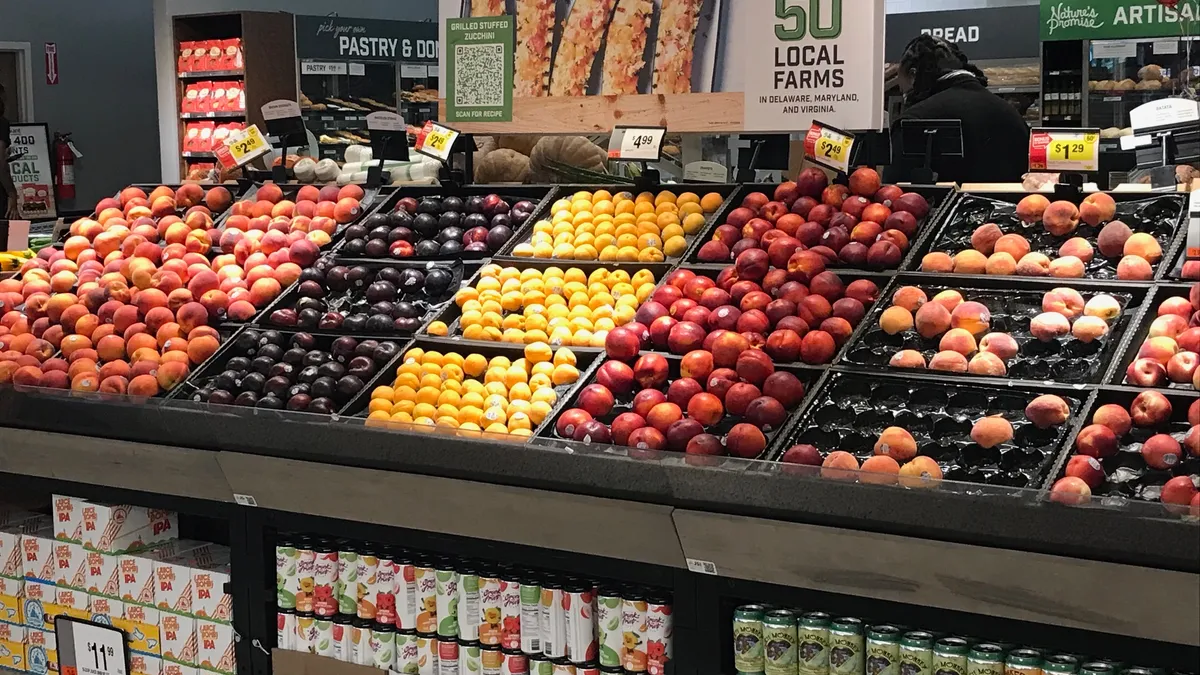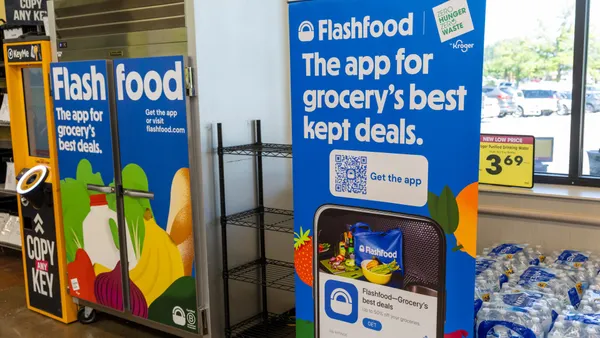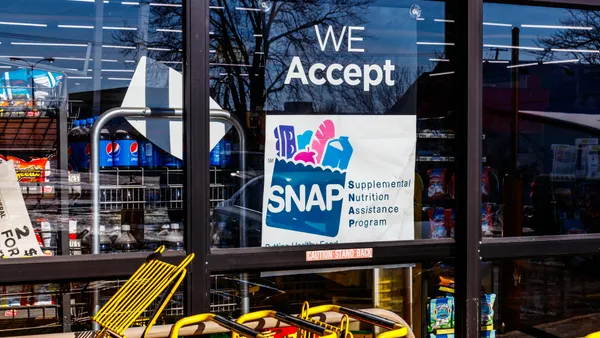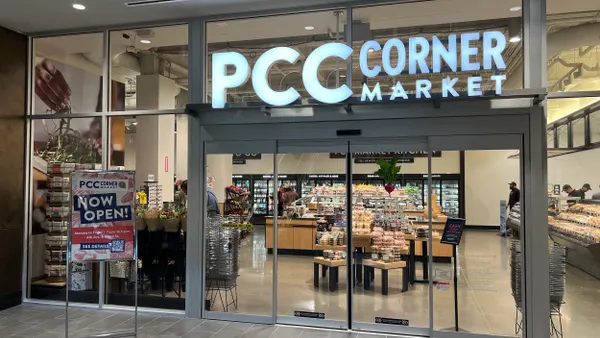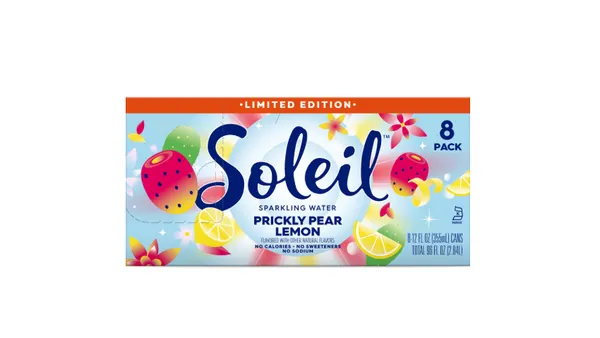Dive Brief:
- Half of food retailers significantly or moderately increased their health and well-being programs over the past year and have been prioritizing offering better-for-you products, according to a new report by the Food Industry Association (FMI) and the Academy of Nutrition and Dietetics Foundation (Academy Foundation).
- There are five key ways retailers can promote food-as-medicine efforts, according to the report: prescription programs, personalized nutrition education, medically tailored nutrition, path-to-purchase marketing and incentive programs, according to the report.
- Even if they don't use the label "food as medicine," which the Academy Foundation defines as “a philosophy where food and nutrition aids individuals through interventions that support health and wellness,” food retailers are already connecting food and nutrition to health and wellness, per the report.
Dive Insight:
The pandemic has placed a greater emphasis on health and wellbeing, with shoppers and employees turning to food as an outlet to fortify their health.
Food as medicine is already integrated into other industries, such as healthcare, and can be leveraged by food retailers to their advantage, the report notes. When grounded in science, food as medicine can better connect retailers with shoppers and workers by showing them how food impacts their health.
While the concept is usually driven by middle-class and educated shoppers between the ages of 25 and 44, food retailers shouldn't ignore other customer demographics.
"It is important to note that the individuals driving this culture aren’t necessarily the people most affected by it. Although the middle class is driving this culture, changes within it impact the lower and upper classes as well," the report said.
Food retailers have five main programs they can explore to promote food as medicine, per the report:
- Incentive programs: Food retailers could have discounted pricing on categories like fruits and vegetables, digital coupons for loyalty members to get them to try new products or employee discounts. While this type of program aims to minimize economic barriers to wholesome, nutrient-rich foods, not all participants will necessarily be food insecure, the report noted.
- Path-to-purchase marketing: This strategy could include signage, labels, information on grocers' apps and websites, virtual food demonstrations and online search options with the goal of having people make behavioral or environmental changes when shopping. "Behavior change includes increased awareness and knowledge, and environmental change includes improved availability and/or affordability of nutrient-rich foods," the report said.
- Medically tailored nutrition: Medically tailored food or meal programs allow a registered dietitian nutritionist (RDN) or health professional to write a prescription for tailored meals or boxes of food to meet people's specific health conditions. The report notes this type of program can "provide a more comprehensive therapy for patients."
- Personalized nutrition education: Retailers could publish nutrition-focused blogs, offer a diabetes prevention program or establish employee wellness programs. Health screenings could include checking blood pressure, blood glucose levels and weight and biometric screenings.
- Food prescription programs: A health professional or RDN could prescribe food to patients who have health conditions or face food insecurity by giving them coupons or vouchers.
RDNs are in the best position to advance these efforts if food retailers' executive leaders and chief merchants fully embrace the concept, the report found. They can drive adoption with efforts like helping improve food access and nutrition security; promoting food safety education; and driving brand awareness through science-based marketing strategies.
Funded by a grant from Walmart, the report took into account a survey of FMI food retailer members representing 26,000 stores, a survey of roughly 1,400 adult U.S. shoppers, input from registered dietitian nutritionists and digital ethnography research.



